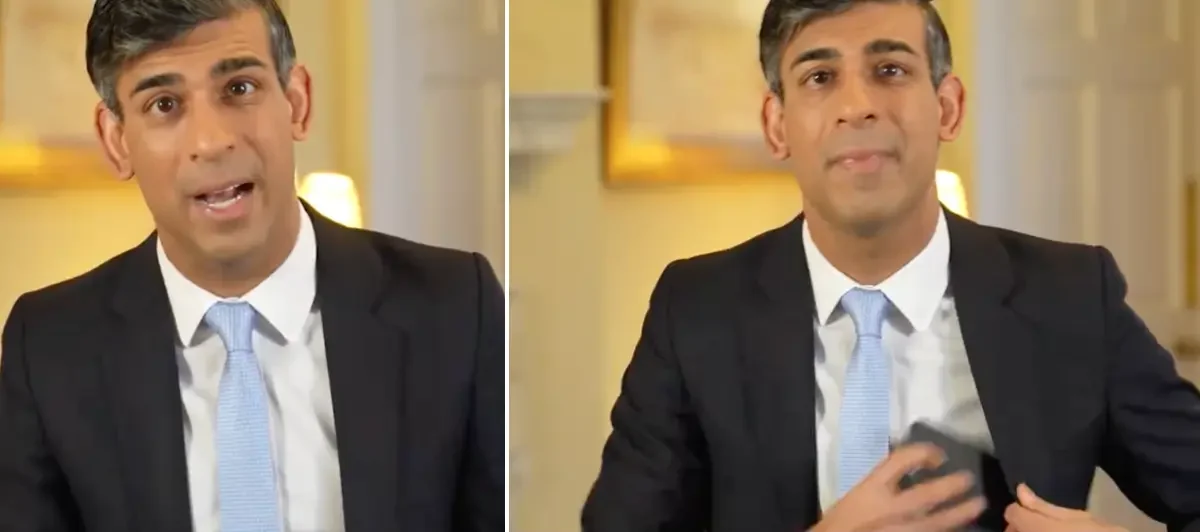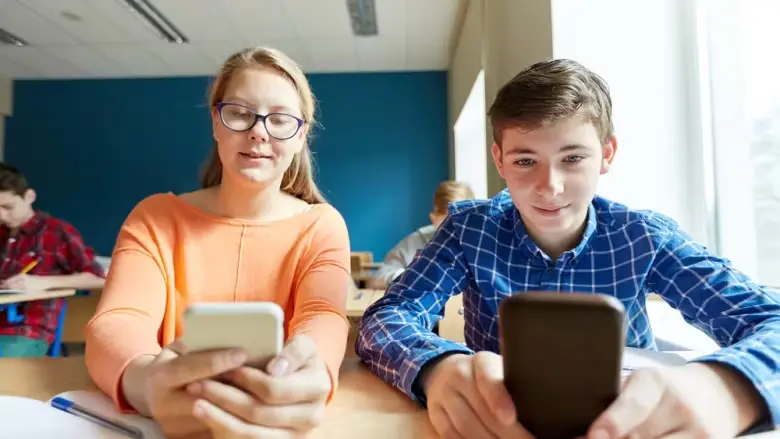Mobile Phones in Schools: UK’s Bold Ban to Boost Focus

Contents
- 1 The Reasons Behind the UK Ban on Mobile Phones in Schools
- 2 The Impact of Mobile Phones on Students’ Academic Performance
- 3 How the Ban on Mobile Phones in Schools is Enforced
- 4 Arguments for and Against the Ban
- 5 Alternative Solutions to the Mobile Phone Ban
- 6 The Role of Parents and Teachers in Managing Mobile Phone Use
- 7 Case Studies of Schools that have Successfully Implemented the Ban
- 8 The Long-Term Effects of the Mobile Phone Ban on Students
- 9 Conclusion
- 10 Author
In a move aimed at minimizing distractions and improving student focus, the UK has taken a firm stance on the use of bandar slot gacor mobile phones in schools. With the growing prevalence of smartphones among students, educators and policymakers have recognized the negative impact these devices can have on classroom learning. As a result, a ban on mobile phones during school hours has been implemented across the country. This decision aligns with recent studies highlighting the detrimental effects of phone usage on academic performance and mental well-being.
By removing this potential distraction, schools hope to promote a more productive and conducive learning environment. Students will now be encouraged to engage directly with their peers and teachers, fostering face-to-face communication and deeper connections. The ban also extends to the use of headphones and other personal electronic devices during instructional time. As the UK takes a firm stance on mobile phone usage, other countries may follow suit in prioritizing focused learning and student well-being over technology dependency.

The Reasons Behind the UK Ban on Mobile Phones in Schools
The decision to implement a ban on mobile phones in UK schools stems from several key reasons. Firstly, research has indicated that the presence of mobile phones in classrooms can lead to distractions and decreased academic performance. Studies have shown that even the mere presence of a phone on a student’s desk can significantly reduce their ability to concentrate and retain information. Additionally, the constant notifications and temptations for social media engagement on smartphones can divert students’ attention away from their studies.
The ban also aims to address the negative impact of excessive screen time on students’ mental well-being. The prevalence of social media and online platforms has resulted in increased rates of cyberbullying and the development of unrealistic expectations among young people. By limiting phone usage in schools, educators hope to create a safer and more inclusive environment where students can focus on their personal and social development without the pressures of online platforms.
Furthermore, the ban on mobile phones seeks to promote face-to-face communication and deeper connections among students. With the rise of digital communication, students may rely heavily on text messages and social media to interact with their peers, potentially hindering the development of crucial social skills. By removing mobile phones from the equation, schools hope to encourage students to engage directly with one another, fostering better communication, empathy, and teamwork.
The ban on mobile phones in UK schools is a proactive measure to address the negative consequences of technology dependency on students’ academic performance, mental well-being, and social development.
The Impact of Mobile Phones on Students’ Academic Performance
Numerous studies have highlighted the negative impact of mobile phone usage on students’ academic performance. One significant issue is the distraction factor. Mobile phones provide a constant stream of notifications, tempting students to check their messages, social media, or other apps during class time. This constant interruption disrupts the flow of learning and reduces the ability to concentrate on the lesson at hand.
Research has also shown a correlation between increased mobile phone usage and decreased academic achievement. Excessive screen time can lead to reduced study hours, as students may spend more time on their phones rather than engaging in productive academic activities. Furthermore, the use of mobile phones for entertainment purposes, such as playing games or watching videos, can negatively impact students’ time management and overall focus on their studies.
Moreover, mobile phones can hinder students’ ability to retain information and comprehend complex concepts. Research suggests that the constant switching between tasks, such as texting and listening to a lecture simultaneously, leads to divided attention, resulting in reduced cognitive processing and learning. The ability to actively engage in class discussions and ask questions may also be compromised when students are preoccupied with their phones.
By implementing a ban on mobile phones in schools, educators aim to eliminate these distractions and provide students with a conducive learning environment that promotes focus, concentration, and active participation.
How the Ban on Mobile Phones in Schools is Enforced
The ban on mobile phones in UK schools is enforced through a combination of policies, guidelines, and monitoring systems. Each school has its own specific approach, but common enforcement measures include:
- Policy implementation: Schools develop clear policies outlining the ban on mobile phones during school hours and communicate these policies to students, parents, and staff. These policies often specify consequences for violations, such as confiscation of the device or disciplinary action.
- Physical storage: Some schools provide lockers or designated storage areas where students can securely store their mobile phones during the school day. This ensures that students are not tempted to use their phones during class time.
- Teacher surveillance: Teachers play a vital role in enforcing the ban by actively monitoring students’ adherence to the policy. They may conduct periodic checks to ensure students are not using their phones and intervene immediately if a violation is observed.
- Parental involvement: Schools encourage parents to support the ban by reinforcing the importance of limiting mobile phone usage during school hours. This collaboration between schools and parents helps create a unified approach to enforcing the policy and ensures consistency in messaging.
- Technological solutions: Some schools utilize technological tools to enforce the ban, such as network filters that restrict access to certain websites or apps during school hours. Additionally, mobile phone signal blockers can be installed within school premises to prevent phones from connecting to cellular networks.
By implementing a combination of these enforcement measures, schools aim to create a culture of compliance and minimize the potential for distractions caused by mobile phones during school hours.

Arguments for and Against the Ban
The ban on mobile phones in UK schools has sparked debates and generated arguments from both proponents and opponents. Let’s explore some of the key arguments put forth by each side:
Arguments for the Ban
- Reduced distractions: Proponents argue that banning mobile phones minimizes distractions in the classroom, allowing students to focus on their studies and engage actively in the learning process.
- Improved academic performance: By eliminating the distractions caused by mobile phones, students are more likely to concentrate on their studies, leading to improved academic performance and better learning outcomes.
- Enhanced social interactions: Banning mobile phones fosters face-to-face communication among students, encouraging the development of social skills, empathy, and deeper connections.
- Reduced cyberbullying: Limiting the use of mobile phones in schools can help reduce the occurrence of cyberbullying, as students have fewer opportunities to engage in negative online behaviors.
Arguments against the Ban
- Emergency situations: Opponents argue that mobile phones provide a necessary tool for students to contact parents or emergency services during unforeseen circumstances.
- Educational benefits: Mobile phones can be used as educational tools, allowing students to access educational apps, research information, or collaborate on projects.
- Digital literacy: In an increasingly digital world, opponents argue that students need to develop digital literacy skills, which can be fostered through responsible use of mobile phones in educational settings.
- Individual responsibility: Critics of the ban argue that students should be taught to be responsible for their own behavior and phone usage rather than relying on a blanket ban.
Both sides present valid points, and finding a balance between limiting distractions and harnessing the educational potential of mobile phones is crucial.
Alternative Solutions to the Mobile Phone Ban
While the UK ban on mobile phones in schools has proven effective in minimizing distractions, alternative solutions can also be explored to address the concerns surrounding phone usage. Some potential alternatives include:
- Educational integration: Rather than completely banning mobile phones, schools can explore ways to integrate them into the curriculum. This approach involves teaching students responsible phone usage and utilizing educational apps and tools to enhance learning.
- Designated phone use times: Schools can implement designated phone use times, such as break periods, where students are permitted to use their phones. This approach allows students to satisfy their desire to use their phones while still maintaining focus during instructional time.
- Personal responsibility education: Schools can prioritize educating students on responsible mobile phone use, including the importance of managing screen time, avoiding distractions, and using phones as educational tools rather than purely for entertainment.
- Parental involvement: Collaboration between schools and parents is crucial in addressing phone-related concerns. Schools can work with parents to establish guidelines for phone usage at home and encourage open communication about responsible phone use.
By exploring these alternative solutions, schools can strike a balance between minimizing distractions and harnessing the educational potential of mobile phones.
The Role of Parents and Teachers in Managing Mobile Phone Use
Parents and teachers play an essential role in managing mobile phone use among students. Here are some ways they can contribute to creating a healthy phone usage environment:
Parents:
- Setting boundaries: Parents should establish clear guidelines for mobile phone use at home, including designated study times, screen time limits, and phone-free zones.
- Leading by example: Parents should model responsible phone use behavior and limit their own phone use in front of their children. This demonstrates the importance of maintaining a healthy balance between technology and real-life interactions.
- Open communication: Encouraging open communication about mobile phone use with their children allows parents to understand their concerns, address any issues, and reinforce the importance of responsible phone usage.
Teachers:
- Education on responsible use: Teachers can incorporate lessons on responsible mobile phone use within the curriculum, teaching students about digital citizenship, managing screen time, and using phones as educational tools.
- Classroom policies: Teachers should establish clear classroom policies regarding mobile phone usage and explain the rationale behind these policies to students. Consistently enforcing these policies helps create a focused learning environment.
- Monitoring and intervention: Teachers should actively monitor students’ adherence to mobile phone policies and intervene when necessary. This may involve confiscating phones, redirecting students’ attention, or offering alternative activities to engage students.
By working together, parents and teachers can create a supportive environment that encourages responsible mobile phone use and fosters students’ overall well-being.
Case Studies of Schools that have Successfully Implemented the Ban
Several schools around the UK have successfully implemented the ban on mobile phones, yielding positive outcomes for students’ academic performance and well-being. Let’s explore a few case studies:
- Hampstead School, London: Hampstead School implemented a strict ban on mobile phones during school hours, providing lockers for students to store their devices. Since the ban’s implementation, teachers have reported increased student engagement, improved concentration, and a more positive classroom environment.
- Stoke High School, Ipswich: Stoke High School introduced a mobile phone ban in 2018, citing concerns over distractions and cyberbullying. The school saw a notable reduction in disruptive incidents and an increase in student interaction during break times.
- Nottingham Academy, Nottingham: Nottingham Academy implemented a mobile phone ban and introduced designated “phone zones” where students can use their phones during breaks. This approach allows students to satisfy their desire to use their phones while maintaining a focused learning environment.
These case studies demonstrate that a ban on mobile phones can positively impact student behavior, engagement, and overall learning experiences.

The Long-Term Effects of the Mobile Phone Ban on Students
The long-term effects of the mobile phone ban in UK schools are yet to be fully understood, as the ban is a relatively recent development. However, several potential long-term effects can be anticipated:
- Improved academic performance: By reducing distractions and promoting focused learning, the ban may lead to improved academic performance among students. Increased concentration and engagement can result in better retention of knowledge and improved grades.
- Enhanced social skills: The ban on mobile phones encourages face-to-face communication, potentially leading to the development of stronger social skills, empathy, and deeper connections among students.
- Reduced cyberbullying: Limiting access to mobile phones during school hours can contribute to a decrease in cyberbullying incidents, creating a safer and more inclusive school environment.
- Healthy technology habits: The ban may instill healthier technology habits among students, teaching them to manage screen time, reduce dependency on mobile phones, and find a balance between technology and real-life interactions.
- Preparation for the future: By adapting to a learning environment without constant phone use, students may develop skills that are essential for their future success, such as focus, critical thinking, and effective communication.
As the ban continues to be implemented and studied, further research will shed light on the long-term effects and benefits for students.
Conclusion
The UK’s ban on mobile phones in schools reflects a growing recognition of the negative impact of these devices on student focus, academic performance, and well-being. By removing this potential distraction, schools aim to create a more productive and conducive learning environment that fosters face-to-face communication and deeper connections among students. While the ban is not without its critics, alternative solutions, such as educational integration and responsible phone use guidelines, can also be explored.
Parents and teachers play a vital role in managing mobile phone use and guiding students towards responsible phone habits. Through collaboration and open communication, schools can strike a balance between minimizing distractions and harnessing the educational potential of mobile phones. As the UK takes a firm stance on mobile phone usage, other countries may follow suit in prioritizing focused learning and student well-being over technology dependency.


